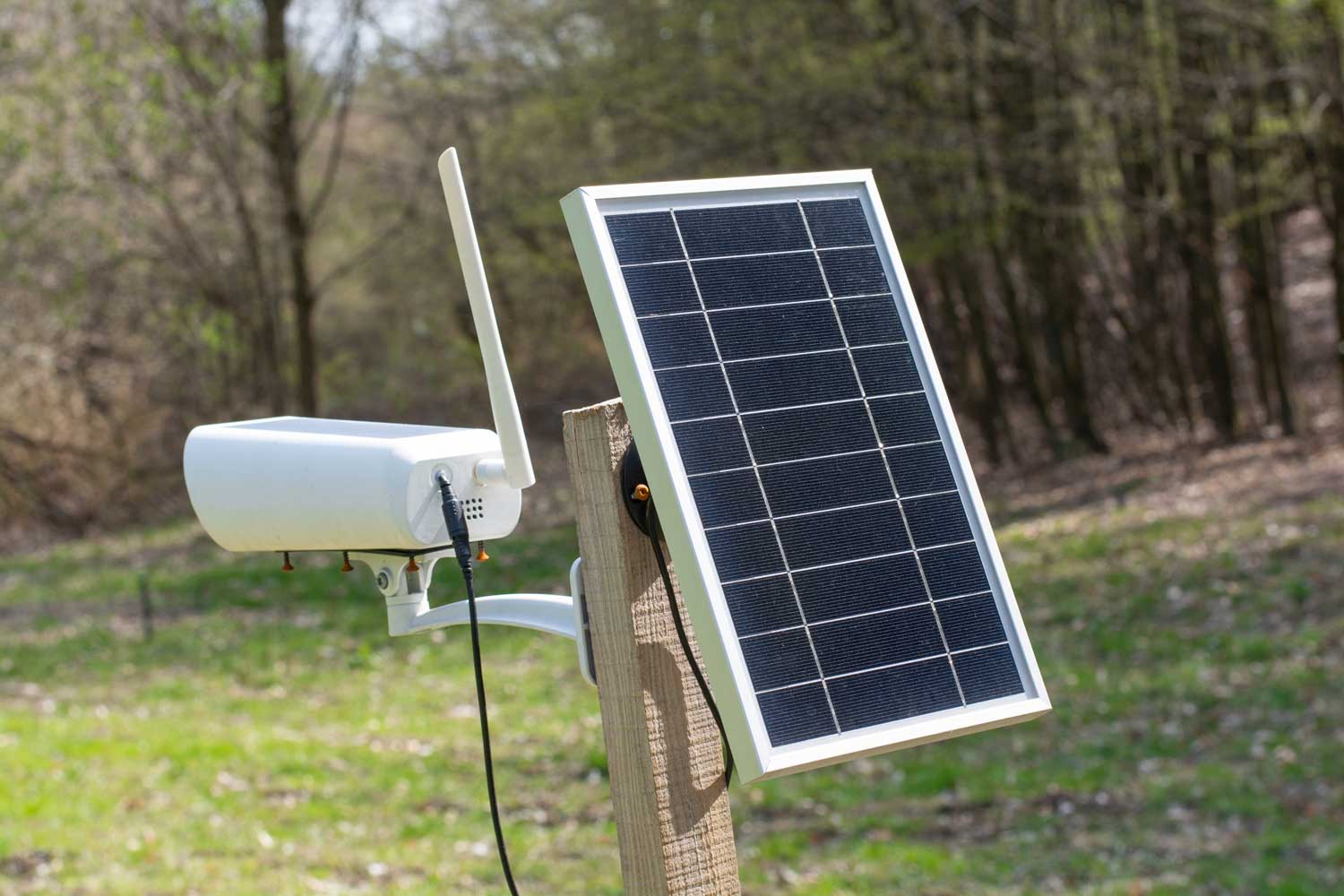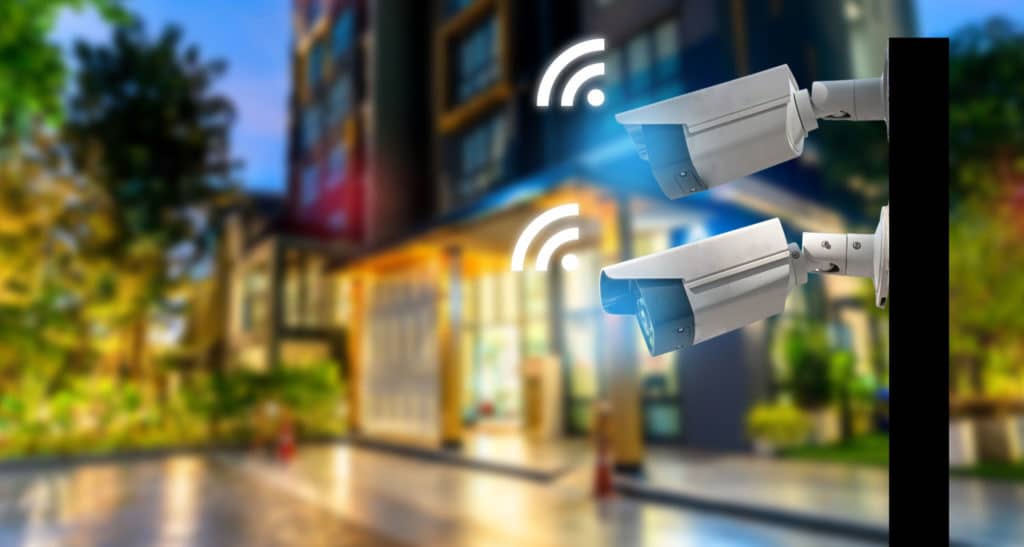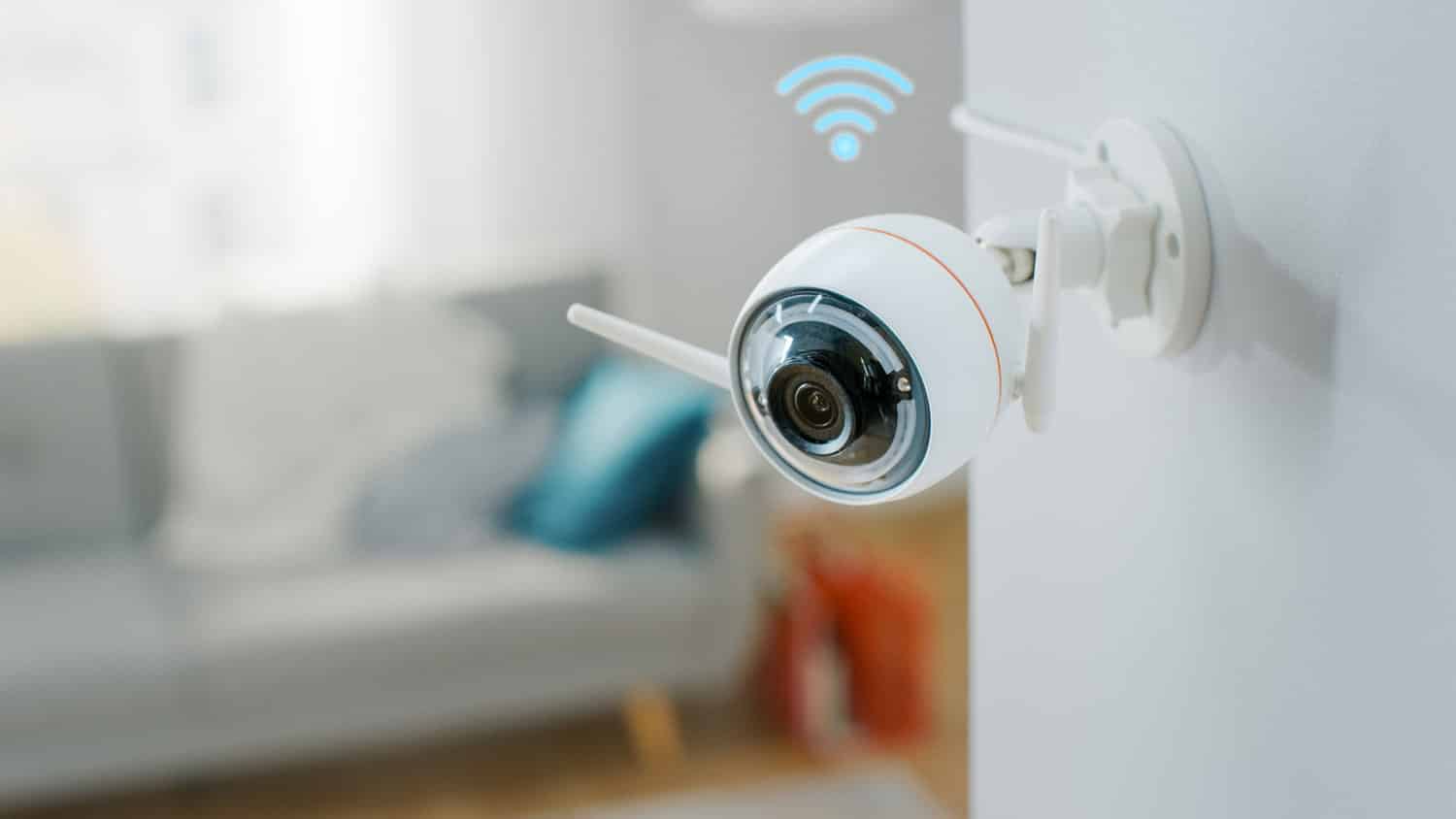Many modern security systems can send a live video feed over the internet so that you, or your business’ security team, can watch the camera footage. But do wireless security cameras need Wi-Fi coverage to work properly? As it turns out, you can have perfectly functional wireless security systems without a Wi-Fi installation.
How to Use Wireless Security Camera Systems
If you have a remote location without internet access, you can still have the peace of mind video surveillance offers. Today some cameras work without Wi-Fi. These cameras can even be battery or solar powered, so you don’t need electricity, either. Hardened wireless security camera systems can withstand rain and snow and can be made more tamper-proof, if you’re worried about vandalism.
Security cameras without Wi-Fi are great for the following locations:
-
Airbnb locations or hotel resorts
-
Botanical gardens, hiking trails, or parks
-
Cabins and vacation homes
-
Campsites or RV storage areas
-
Car lots
-
Construction sites
-
Docks, marinas, and boats
-
Food trucks or carts
-
Highways, city streets, and other municipal areas
-
Parking garages
-
Sheds and outbuildings
-
Warehouses

Consider solving this problem with a mobile wireless security camera system with several remote cameras and an optional NVR. These units should be solar powered with a battery backup. The benefits of this security setup include:
-
You can bring mobile cameras with you to the next construction site, reducing the need to reinvest.
-
Since these security cameras function without Wi-Fi, instead connecting to your cell network, you don’t need to install Wi-Fi on every new job site.
-
Alternatively, the cameras can connect via a proprietary network and record data into an NVR.
Today you have several setup options for these types of locations that lack internet connectivity, including:
-
Cellular Security Cameras
It uses 3G, 4G, or 5G networks for your wireless security camera system. These IP-enabled cameras can connect wirelessly to your mobile network; the process works similarly to a cell phone. Cellular security cameras have a cell module inserted into the control panel. This connection allows the camera to connect to the same network our phones run on. That module sends signals through the mobile phone network. So, video can flow directly into your cell phone or an offsite monitor. You must have a cellular data plan and a SIM card in each camera to send videos. Some major mobile carriers, like AT&T, T-Mobile, and Verizon, have a similar service for solar-powered and battery-operated security cameras.
-
CCTV
It is the classic video surveillance technology – cameras sending video feed to local on-site storage. While CCTV is a more dated technology, new software makes these old standbys more efficient than before. For instance, you can store analog camera data on a network video recorder (NVR) or just a sim card within the camera. Or, you can hard wire these cameras to record over a coaxial cable.
If you are currently considering a wireless security camera system, there are pros and cons to these installations. Which is better; wireless or wired; cloud-connected or cellular? The answer depends on your location capabilities and how you want to use these tools.
Pros and Cons of a Wireless Security Camera System
Say you’re setting up security systems without Wi-Fi access. You understand the options available to you, but you aren’t sure what type of wireless security camera system to install. Some of the pros and cons of using the cellular network for video surveillance include:
- Pro: Using a cell network gives your security team a live stream mobile phone view of your property any time of the day or night.
- Con: Cellular network security cameras require the bandwidth of an unlimited data plan. These plans can be expensive, particularly if you have multiple locations to surveil.
- Pro: These cameras can allow your security team to use remote control features. From a remote device they can turn the cameras on and off, zoom, or even speak through the phone into the video camera speakers. That said, you need specially equipped cameras and software that enable these features.
- Con: Adding connected devices to your cell network will degrade your speed. Slow speeds are almost always frustrating. With a wireless security camera system, a slow speed can delay your security response.
- Pro: If you’re using a cell network with artificial intelligence (AI) software, your team can receive alert notifications on their phones. For example, AI software can alert about a delivery at a remote property. However, lest you worry that your team will get spammed with worthless notifications, AI is smart enough that it won’t send alerts if it, say, detects a cat walking across a parking lot. AI software is self-improving, meaning these tools get better over time at reducing false alarms.
- Con: Any wirelessly connected device can be hacked through Wi-Fi or your cell network. Talk with your video surveillance vendor about security features to help prevent this.
Ready to Install a Wireless Security System?
Pro-Vigil is a leading nationwide provider of wireless security camera system installation and operation. Our team assesses, designs, and installs the most innovative video surveillance systems in the business. We create security systems for some of the trickiest locations and for any budget. Find out how we can help your business—no matter where it’s located. Contact us online today.









